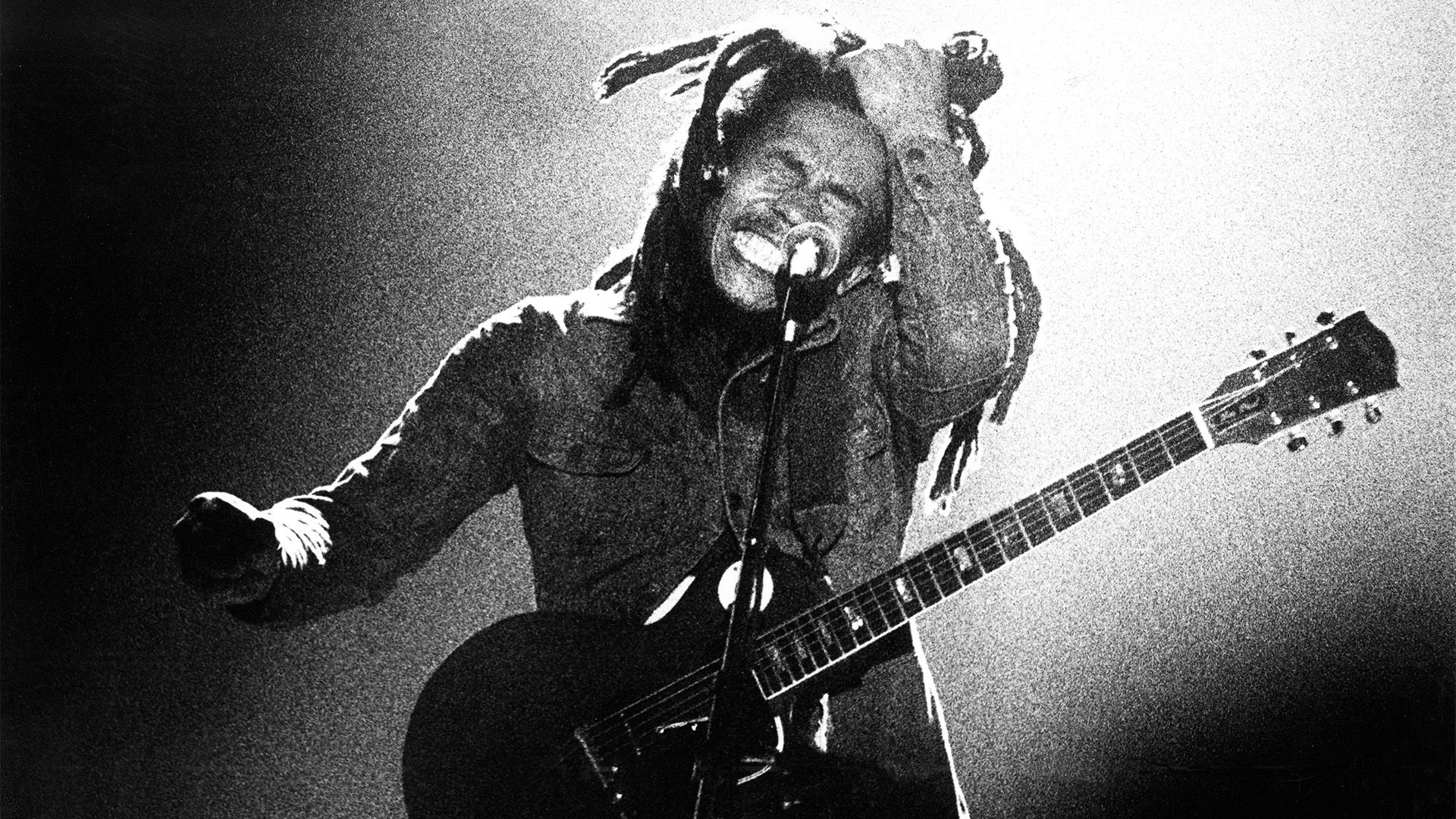How Bob Marley brought reggae into the mainstream

How Bob Marley brought reggae into the mainstream
Overview of Bob Marley's career, including footage of the One Love concert, which has been called the “Jamaican Woodstock.”
Encyclopædia Britannica, Inc.
Transcript
Bob Marley was half Black, half white, half rural, half Kingston—and fully Jamaican.
Marley helped take reggae—a blend of ska, Jamaican urban pop, and American R & B—mainstream. In his short career, he was responsible for some of the most important reggae albums of all time.
He was born Robert Nesta Marley in 1945 in the remote Jamaican hill country to a Black teenage mother and a white British army captain nearly four decades her senior.
His parents marriage ended shortly after his birth. Marley and his mother moved to the poor Kingston neighborhood of Trench Town when he was a teen. He was studying to be a welder while nurturing his musical talent and expressing his outrage about life in Kingston through music.
Marley started recording at age 16. At age 18 he formed the band the Wailers, named because, according to Marley, they started out crying.
After landing a recording contract, in 1963 the band cut the track Simmer Down, a politically charged song about life in Kingston that was very different from the light and playful music Marley had become known for locally.
The song was a hit, which cleared the way for the band to start singing the kind of music that would become the rallying cries of the people who lived in the open sewer, as the tenement where Marley lived was often called.
Over the next decade, the Wailers produced music that was infused with the characteristics of not only ska and R & B but also punk, rock, rock steady, and later their Rastafarian beliefs.
The band rebranded as Bob Marley and the Wailers in 1974, as Marley’s stardom had grown and the other original members had departed.
His fame abroad imbued Marley with political influence at home, which he tried to use to bring stability to the governmental situation in Jamaica.
In 1976 Marley and the Wailers were asked by the prime minister to play the Smile Jamaica Concert, to help diffuse tension in the country before an upcoming election.
Gunmen attacked Marley’s house during a rehearsal days before the concert, however. Marley, his wife, and the band’s manager were shot. They all survived. Marley played the concert with a bullet still in his arm.
After this assassination attempt, Marley fled for London, where he recorded the aptly titled Exodus, which Time magazine later called the best album of the 20th century.
Marley and the band returned to Jamaica in 1978 to play the One Love concert, hailed as “the Jamaican Woodstock,” and to try to negotiate peace between Jamaica’s warring political factions.
The country experienced a short bout of calm after the concert, and Marley and the Wailers embarked on a U.S. tour. But Marley was soon diagnosed with cancer, and he died at age 36 in 1981.
He was posthumously inducted into the Rock and Roll Hall of Fame and awarded a Grammy.







